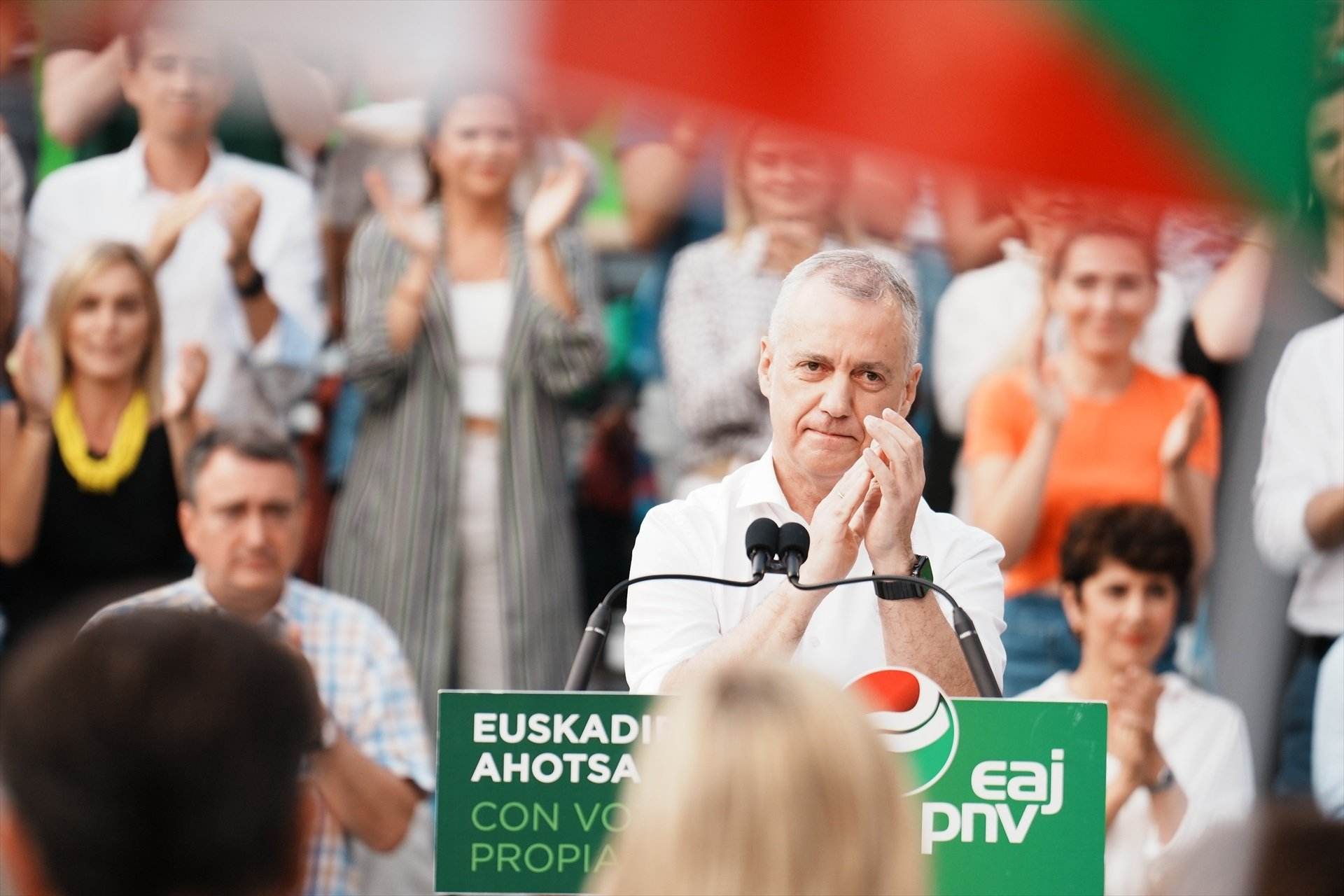The Basque lehendakari, or president, Íñigo Urkullu, maintains that the current political moment "opens up a new opportunity" to make advances in the plurinational character of the Spanish state and the development of the self-government of the historical nations that are part of it, such as Euskadi or Catalonia, without the need to modify the Constitution. In an opinion article published in El País this Thursday, Urkullu proposes a "constitutional convention" that would allow for "an interpretation of the Constitution with regard to what has not been resolved: the territorial issue", and without there being a prior modification of the 1978 Constitution, which has proved notoriously difficult to amend during the 44 years that it has been in force.
Urkullu, of the Basque Nationalist Party (PNV), who only yesterday had an unsuccessful telephone conversation with the People's Party (PP) president, Alberto Núñez Feijóo, as part of the round of contacts of the Spanish conservative leader's difficult investiture quest, explained in the article that the figure of the "constitutional convention" is a device used in "Anglo-Saxon political culture" and "there would be no impediment" to its application in Spain. It would, he says, be a "limited or specific" constitutional convention to update the interpretation of the Constitution on the territorial question. "It wouldn't be a magic formula or an expedited path, but it could open up new possibilities for future development," he underlined.
Plurinational state
As Urkullu set out, the Spanish general election on July 23rd "corroborated the diversity and plurality of the Spanish state" and now, consequently, it is "appropriate" to address two "current" questions: "Why in a state should there only be one nation? And why can't the Spanish state be plurinational, as it was in practice until the 18th century?"
According to the lehendakari, Spain's 1978 Constitution tried to pave the way in this regard, but there have been successive attempts to turn back from this path or water it down, such as the famous compromise known as café para todos - "the same for everybody", effectively allowing any region of the state to become an autonomous community, even though there was no historical sense in this - or the "invasions of powers", under which powers granted to those autonomous communities were subject to recentralization, with the approval of a Constitutional Court "with a prestige that was no longer what it had at first." Thus, says Urkullu, all that remained was a "political and administrative decentralization", but without the same philosophy being applied to the judiciary, without making the Spanish Senate into an "authentic territorial chamber" and with a Constitutional Court that was the "arbitrator between the state and the autonomous communities [...] but without direct and real representation from those autonomous communities".
Compliance with the statutes and "reciprocal loyalty"
In the opinion of the Basque leader, this "new and viable" initiative that he proposes involves a double pact: an agreement on the rules for the convening and development of the convention on self-government - including principles such as full compliance with each community's Statute of Autonomy, and bilaterality; and then, the holding of the convention within a year to "analyze the current and future scope of the first additional provision of the Constitution, the self-government of the foral [or self-financing] communities and even that of the historical nationalities."
Urkullu believes that there is now the possibility of "evolving progressively" although he is aware that the pact "cannot be imposed on the state". "The two parties must agree and must act with a commitment of mutual loyalty. We do not want to impose anything on anyone, but at the same time we cannot accept that the Basque people are prevented from expressing their will," he asserts in the article.

